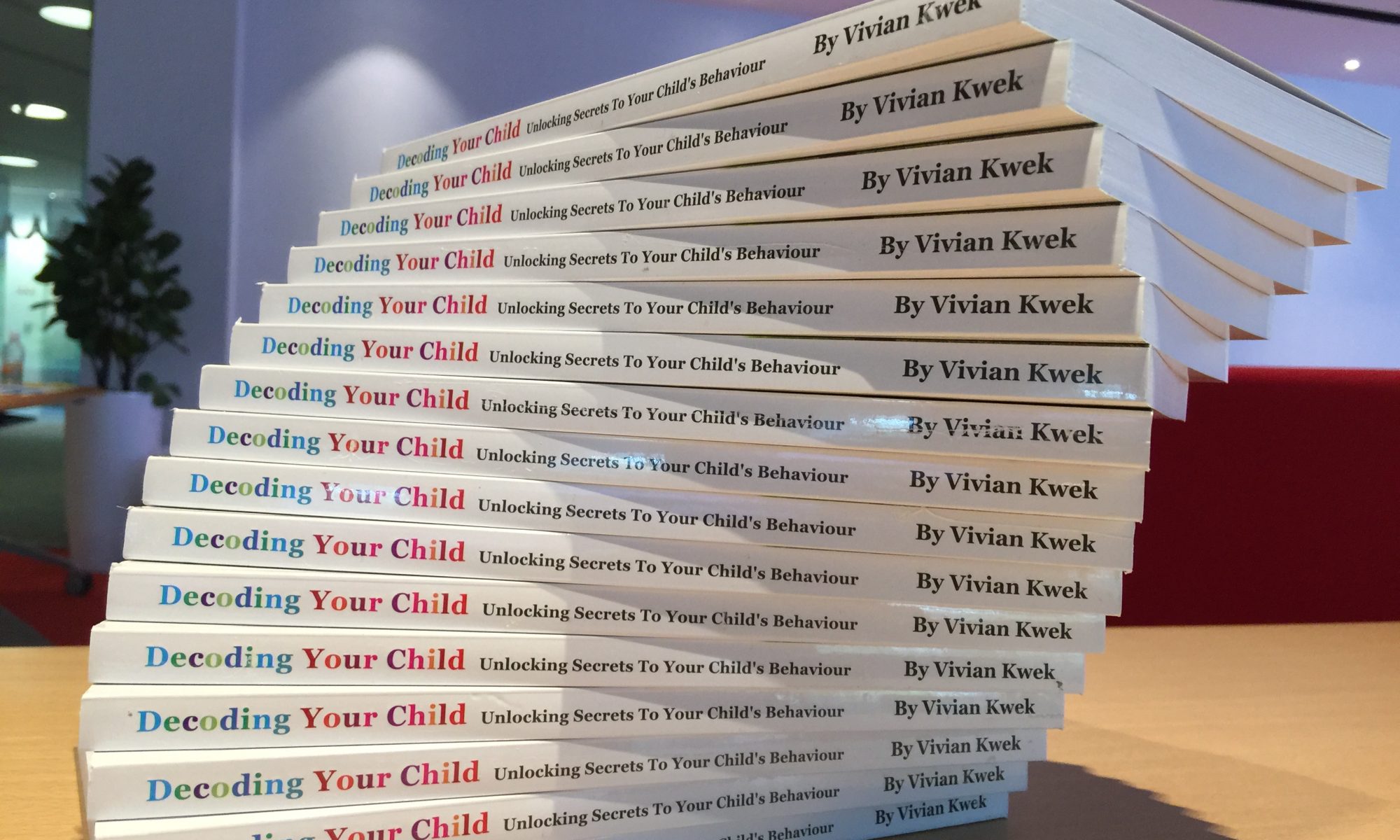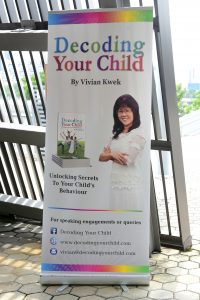In my previous post, I shared the 12 signs of online grooming to help parents teach their children what to look out for in their online interactions in case they are targeted by groomers.
KNOWING about the problem or being able to IDENTIFY the problem is decidedly different from DEALING with it.
How do I tell my daughter her new BFF is a villain? How do I do it in such a way she will not see me as the enemy, considering how much her BFF has poisoned her against me? How do I SOLVE the problem, instead of just removing the manifestations of the problem?
I followed my heart and chose the path of love and empathy.
And it worked.
So what did I do?
1) Keep Cool
When I found my daughter behaving strangely and showing reluctance in surrendering her phone for me to check, I knew in my gut something was wrong. It took great restraint for me to ask for her phone calmly and empathetically. Not as a demand, nor as an accusation, just as-a-matter-of-factly. It was not the first time I had checked the kids’ devices and it would not be the last. To my girl’s credit, she surrendered her phone cooperatively. Definitely with reluctance and apprehension, but she handed it to me nonetheless.
Why not just accuse her?
It would have been so easy to throw accusations like, “What’s wrong? You MUST be hiding something.”
However, such accusations are really counterproductive. I mean, the fact I had felt the need to check carried the assumption that I thought something was up. I did not see the need to rub it in because that would only serve to fracture our relationship.
I knew that if something was really up, a fractured relationship was the last thing I needed. It was clear she would be less inclined to listen to my guidance if her heart were disconnected from mine.
Hence, I worked hard to keep my tone non-accusatory.
How did I keep cool?
Keeping the focus of wanting to help her listen to me and cooperate with me helped me maintain my cool.
Every time an accusation was at the tip of my tongue, I had to bite it back. Yes, I do struggle with being nice and non-accusatory. But I was very conscious that I needed to keep our communication link open. And to do that, it was critical I removed anything that would close her heart to me.
2) Be Compassionate
When a cursory look through the messages confirmed my fears, I asked my daughter how she got to know X. She explained that she knew X from the live chats on Minecraft and apologised for breaking my “no live chat” rule. Upon further gentle probing, “gentle” being the operative word here, I found that she did not know X was an adult until they had moved to the private chat. “She’s a really nice lady, mom,” my girl had said.
I wanted to yell, “She’s a groomer for crying out loud!! She’s ‘nice’ so she can hook you!!!”
Fortunately, I held steadfast to my resolve to respond with love and empathy.
“Are you going to ban me from Minecraft, mom?” my girl asked.
“I don’t know yet,” I replied, and she looked crushed.
Not really knowing how to respond, I just hugged my precious princess tightly and told her, “I am not angry with you. I need to read through all the messages and we’ll decide how to proceed from here.”
My daughter nodded her head and I left to continue looking through the messages. When she saw me struggling to trace back to earlier messages, she helped me use the search function to leapfrog all the way to the beginning of their chat history. It was a great sign because it meant she was being cooperative, that she was open to me digging deeper. There was hope!
Why did I not blame her?
I knew she should know better. But I also knew she was a teenager and that most times, she would NOT know better. Yes, she messed up, but she’s just a teen with a partially developed logical brain. I know how human brains develop and how that affects what our teens can or cannot do. So I can’t blame her for what her brain has not developed to do.
If there were blame to be assigned, it would be to the adults in the picture. X definitely bears some responsibility. If X had an ulterior motive like I suspected, then all the more she was responsible. Even if she did not have ulterior motive, then as a responsible adult, she should not have asked my girl to private chat with her. That’s rule number one in child safety: Do not engage in one-to-one conversation in private with a child we do not know. So yes, X could be blamed.
It would have been easy to just stop there and blame only X. But if I dig deeper, I know I bear the bulk of the blame. I have not kept a close enough eye on my daughter’s online interactions. I have not been very involved in her day-to-day life. I have allowed my girl feel neglected enough to turn to someone else for love and empathy. I have not given her enough attention.
I am responsible for what had happened. Period.
How did I remain compassionate and not blame her?
Being aware that my daughter was not the cause of the problem helped me not lay the blame on her.
I understood that her going online for love and support was but a manifestation of a problem. The actual cause of the problem was that she wasn’t feeling enough love or getting enough support from me. Banning her from Minecraft, or her phone, or her internet accesss, would only deal with the “symptom”. But it would not take care of the root cause. I knew that if the root cause were not addressed, the manifestation of the problem where she went searching for love and empathy elsewhere would resurface.
Hence, I felt I compelled to be compassionate. How could I blame a victim? Blaming her, while convenient, would distract me from the root cause.
3) Make An Effort To Praise
It took me 14 hours to plough through all the messages and take screen shots of conversations where X was “working her magic”. That meant that for 14 hours, my daughter would not know the verdict of my investigation.
However, I was mindful of what she was doing during that period of time. When she played with her little sister, I praised her for the interaction. Having seen how X attacked my little one in the chats and made her to be a rotten spoilt brat, I was so grateful my girl was willing to interact with her sister. I could see she was a lot more patient and loving in the interaction as well. Hence I spotlighted that for my girl so she knew I noticed what she was doing despite having my head immersed in the investigation.
So yes, I praised her for the little things she did.
Praise? Why not just let her worry about the consequences?
I was not interested in playing mind games. She had been played enough by X. I did not want to keep my girl on the edge of her seat, waiting for the guillotine to fall. Of course I was not going to chop off her head, but I knew that was what it must have felt like for her.
If I had just ignored her and let her tremble with uncertainty, what good would that serve? It would be neither loving nor empathetic. Some may think letting her cower will ensure she will remember the lesson better. Maybe. But that is not how I would like her to remember the lesson. I do not want her to remember to “behave” out of fear because, one day, I may not be around to instill that “fear”, then what? Or when she’s all grown up and doesn’t fear me any more, then what? Who or what will keep her in line? No, fear-based discipline does not last.
Instead, what I wanted to achieve from teaching this lesson was for her to understand that her mistake did not define her, nor would it stop me from loving her. I wanted her to know that everyone makes mistakes. More importantly, I wanted her to know that the best thing about making mistakes is that we get to learn from them so we will NEVER (as far as possible) make the same mistakes again. That was why I took the effort to praise her and spotlight what she was doing well, even as I was going through the “crime scene”. I wanted her to know I still love her.
How did I still manage to look for something positive?
Knowing that there is something beautiful and positive in my daughter despite her mistake helped me look for that something positive.
After all, she is not THE mistake. More importantly, not EVERYTHING she does is a mistake. She just happened to have made a mistake, that is all.
I am aware that the more we look for positive behaviour in our children and reinforce those with affirmation and praises, the more our children will live up to our expectations. But if we keep nitpicking on their mistakes and misbehaviour, they would lose heart and stop wanting to become better because we never noticed their improvements anyway. I much prefer to ride the upward spiral rather than the downward one.
And now, as I look back at the past few days since the discovery, I have been swarmed with messages of love and encouragement from friends, and even strangers. I am conscious that everyone knows I have messed up as a parent, that I have made the mistake of neglecting my daughter, but no one has dragged me over the coals for it. For that I am grateful and motivated to be an even better parent.
Positive emotions like love, encouragement and empathy inspire corrective action more effectively than fear-based emotions. That is what motivated me to look for something positive to say to my girl.
4) Explain Patiently
Once I finished ploughing through the 6 weeks worth of constant messaging, I had a clear idea of what went on and what was communicated (in writing). I had also taken a zillion screenshots of the signs I had flagged on online grooming. Now I had the information to go talk to my daughter. But I was not emotionally ready to do so.
I took a moment to calm myself because, honestly, I was beyond flustered. I really had to suppress the urge to scream, “WHAT WERE YOU THINKING??!!” (Yes, unfortunately, I still do have urges like that.) But that would not help the situation.
How was I supposed to share what I have learned with my daughter? How should I do it in such a way she would really GET it, and more importantly, REMEMBER it?
Again, I meditated on love and empathy, and took a deep, deep breath.
Finally, I felt ready.
And that began our 3-hour debrief of the messages (and we only managed to cover ¾ of them). As we went through screenshot after screenshot, we read what X said, and I decoded it for my daughter in “groom-speak”. After a while, I did not even need to decode what X had said. My daughter would just exclaim over and over again, “OMG, I see what she’s doing here!”
My girl could not believe she had not seen the signs. All she saw previously was the kindness, love and support that X had given her. But with a fresh perspective, she now saw the subtle hints and the seeds that were planted, as well as the nurturing of those seeds till they became full grown resentment for the family. She also saw the increasing intensity and frequency of introducing X’s husband into the picture.
I did not have to hammer her head (and heart) with yelling and screaming. I simply gave her some guiding light and she saw the path herself. She saw where X was leading her.
How did I remain patient when the consequences could have been so severe?
Understanding that learning is done best when the student makes the discovery herself helped me to not rush her.
A student always learns better from a teacher who patiently guides the former to understand the lesson rather than from a teacher who rushes the lesson.
I could have sped up the debrief by just laying out what I knew or just laying out the 12 signs of online grooming that I found in the messages. But that’s stuffing information down my girl’s throat. She will forget about it as soon as the incident is over. She will not have gained any wisdom.
By slowly going through our lesson and helping her identify the signs herself, I am confident she will be able to identify the signs if she ever saw them again, even as an adult.
5) Apologise Sincerely
Wait, what? Apologise?
Yes, apologise.
I cannot pretend that EVERYTHING X had said about me was false. X had not lied. If she had, my daughter would have never believed her. If something were 100% false, it is easy to say, “No, that’s not true.” The problem was X had told half-truths. She had mixed lies with obvious truths. Half-truths are the most lethal because they transfer credibility to the lies. The truths make the lies believable. They make it easier to accept everything as true.
So what were the truths that X had said? She had simply repeated things that my daughter had told her, ie things my daughter knew to be true. For example, I was not there all the time when my daughter was doing her schoolwork, or I had restricted my daughter’s time on Minecraft, or I had brought the family out in the evenings or weekends, or I had praised my son, or I had spent time with my youngest daughter, etc etc.
However, X had lied viciously about the intentions behind those actions of mine. She had insisted that I had done those because I “obviously did not care” about my girl’s education, or that I had restricted my girl’s time on Minecraft or brought them out to deprive her of time on Minecraft because I “obviously didn’t care” what she liked to do in her free time, or that I was biased towards my son and youngest and did not care for my girl, etc. She really pounded on how I “OBVIOUSLY DIDN’T CARE” about my girl. Those were lies, lies that were easy to accept as truths because my daughter had FELT that I did not care.
So even though my daughter was misled by half-truths, there were truths in there that I had to take responsibility for. I was not present enough in my girl’s day-to-day life and her online interactions. While I did spend time sitting down to teach her, I had left her on her own to do the assignments. Maybe she needed me to be around (instead of being out for meetings etc) so she could ask me when she was stuck with her work.
The reason why my daughter had believed X was because I had created the “truths” for X to hang her lies on. I was the root cause. If I had not created those “truths”, X would have had nothing to work her magic on.
So I did what I needed to do. I apologised to my daughter. Sincerely. Repeatedly.
How did I even bring myself to apologise when it was X’s fault?
Realising that I was the root cause was all that was needed. Really.
I was not apologising for what X did. I apologised for giving X the opening to do what she did.
I have realised that apologies, when done sincerely, can heal relationships. My relationship with my daughter obviously had a crack which was why X was able to infiltrate in. My apology helped my daughter understand I knew I needed to bear responsibility of what had happened, that I knew my mistake, that I was willing to learn from my mistake. Those were powerful admissions that could mend emotional hurts. I could not afford to let my ego get in the way of having a strong relationship with my daughter, especially when I already knew I was at fault.
Where Do I Go From Here?
I had not invested sufficiently to keep my daughter’s connection with me strong. I may have thought it was sufficient, but it was obviously not sufficient enough for her to feel connected with me. Hence, I need to buck up and do what is necessary. This is not about me but about meeting her needs. I cannot possibly tell her, “Too bad. That’s all I have to offer.” I need to work harder to ensure she feels my love and not feel neglected.
With this, I need to relook at how I can remain connected with each of my three children (and my husband). More importantly, I need to check in with them regularly to be sure THEY feel connected with me.
What Happened to the Earlier “Connection” Established?
If my girl and I have had such a strong connection previously, how could this have happened? Was that connection completely gone? Or was that connection non-existent in the first place?
I am confident our connection is still there. It’s just that a section of the “bridge” fell off. That was why my daughter broke the rules and that was why an intruder was able to drive a wedge between us.
I know our earlier connection is still there because if it weren’t, my daughter would not have surrendered her phone without a big fight, nor would she have helped me with my investigation when I was fumbling with the app. More critically, she would not have been open to my decoding but would have insisted I was wrong and X was right.
If we have not had a strong connection before this, she could have stolen our credit cards and taken the first flight out to meet X.
I thank God that all the effort I have put in to establish a strong relationship with her has paid off. Things could have been so much worse.
Conclusion
Going back to the FB post I had quoted in Part 1 regarding my learning point from Safer Internet Day 2018,
“Very insightful sharing on strategies but the one point that kept coming across: establish a strong relationship with our children so they are more open to our guidance.”
Again, the power of having a strong relationship proves itself.
What had happened was a result of my lack of investment in the relationship between my daughter and me. My initial “investment principal” was still there. It’s just that I had momentarily stopped making “deposits”, resulting in a dip in the “return of investment”.
The lesson I took from this episode is this. We cannot take for granted that our initial investment in our relationship will last forever. We need to continually invest in it. And that applies to ALL relationships.
Happy parenting!
~ Vivian Kwek ~

























 “I’m sorry.”
“I’m sorry.” “That was all I ever wanted to hear.”
“That was all I ever wanted to hear.”